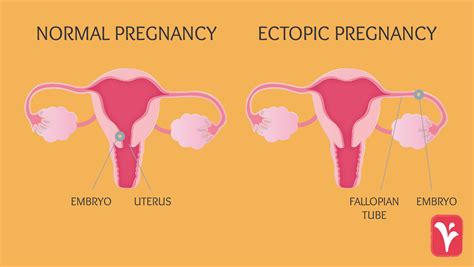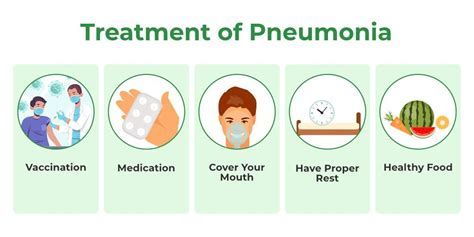Intro
Learn about ectopic pregnancy, a life-threatening condition where fertilized eggs implant outside uterus, causing symptoms like abdominal pain and vaginal bleeding, requiring emergency treatment to prevent complications.
An ectopic pregnancy is a serious and potentially life-threatening condition that occurs when a fertilized egg implants outside the uterus, typically in the fallopian tube. This can cause the tube to rupture, leading to severe internal bleeding and other complications. Ectopic pregnancy is a major cause of maternal mortality and morbidity, especially in developing countries. According to the American Pregnancy Association, approximately 1 in 50 pregnancies are ectopic, resulting in around 3,000 to 4,000 ectopic pregnancies per year in the United States alone.
The importance of understanding ectopic pregnancy cannot be overstated. Early detection and treatment are crucial to preventing long-term damage and ensuring the best possible outcomes for women who experience this condition. Furthermore, ectopic pregnancy can have a significant emotional and psychological impact on women and their families, making it essential to provide comprehensive support and care. By raising awareness about ectopic pregnancy, we can work towards reducing the risks and improving the health and well-being of women worldwide.
Ectopic pregnancy is often referred to as a "silent killer" because it can be difficult to diagnose and may not exhibit obvious symptoms until it's too late. Women who experience ectopic pregnancy may not realize they are pregnant or may attribute their symptoms to other conditions, such as pelvic inflammatory disease or ovarian cysts. As a result, it's essential to educate women about the risks and warning signs of ectopic pregnancy, particularly those who have a history of infertility, pelvic surgery, or previous ectopic pregnancies. By understanding the causes, symptoms, and treatment options for ectopic pregnancy, we can empower women to take control of their reproductive health and seek medical attention if they suspect something is wrong.
Causes and Risk Factors of Ectopic Pregnancy

Ectopic pregnancy occurs when a fertilized egg fails to travel to the uterus and instead implants in the fallopian tube or other areas outside the uterus. This can be caused by a variety of factors, including damage to the fallopian tubes, hormonal imbalances, and genetic abnormalities. Women who have a history of pelvic inflammatory disease, endometriosis, or previous ectopic pregnancies are at higher risk of experiencing an ectopic pregnancy. Additionally, women who undergo fertility treatments, such as in vitro fertilization (IVF), may also be at increased risk.
Some of the most common causes and risk factors for ectopic pregnancy include:
- Damage to the fallopian tubes due to pelvic surgery, infection, or endometriosis
- Hormonal imbalances or irregular ovulation
- Genetic abnormalities or birth defects
- Previous ectopic pregnancies or miscarriages
- Fertility treatments, such as IVF or ovulation induction
- Smoking or tobacco use
- Advanced maternal age (over 35 years)
Symptoms of Ectopic Pregnancy
The symptoms of ectopic pregnancy can vary widely, but common signs include: * Severe abdominal pain or cramping * Vaginal bleeding or spotting * Shoulder pain or discomfort * Nausea and vomiting * Dizziness or lightheadedness * Abnormal vaginal discharge or odorIt's essential to seek medical attention immediately if you experience any of these symptoms, especially if you suspect you may be pregnant. Early detection and treatment can significantly improve outcomes and reduce the risk of complications.
Diagnosis and Treatment of Ectopic Pregnancy

Diagnosing ectopic pregnancy typically involves a combination of physical examination, medical history, and diagnostic tests, such as:
- Pelvic exam to check for tenderness or abnormalities
- Ultrasound to visualize the uterus and fallopian tubes
- Blood tests to detect pregnancy hormones and rule out other conditions
- Laparoscopy or laparotomy to visualize the fallopian tubes and surrounding tissues
Treatment for ectopic pregnancy depends on the severity of the condition and the patient's overall health. In some cases, ectopic pregnancy may be treated with medication, such as methotrexate, to stop the growth of the embryo and reduce the risk of rupture. However, in more severe cases, surgery may be necessary to remove the embryo and repair any damage to the fallopian tubes.
Some common treatment options for ectopic pregnancy include:
- Medication to stop the growth of the embryo
- Laparoscopic surgery to remove the embryo and repair the fallopian tube
- Open surgery to remove the embryo and repair the fallopian tube
- Expectant management, where the patient is closely monitored for signs of rupture or other complications
Complications and Long-Term Effects of Ectopic Pregnancy
Ectopic pregnancy can have significant complications and long-term effects, including: * Fallopian tube rupture, which can lead to severe internal bleeding and organ damage * Infertility or reduced fertility due to damage to the fallopian tubes * Emotional and psychological trauma, including anxiety, depression, and post-traumatic stress disorder (PTSD) * Increased risk of future ectopic pregnancies or other reproductive health problemsIt's essential to seek medical attention immediately if you suspect you have an ectopic pregnancy or are experiencing any symptoms. Early detection and treatment can significantly reduce the risk of complications and improve outcomes.
Prevention and Management of Ectopic Pregnancy

While it's not possible to completely prevent ectopic pregnancy, there are steps women can take to reduce their risk. These include:
- Practicing safe sex and using contraception to reduce the risk of unintended pregnancy
- Avoiding smoking and tobacco use, which can damage the fallopian tubes and increase the risk of ectopic pregnancy
- Maintaining a healthy weight and diet to reduce the risk of hormonal imbalances and other reproductive health problems
- Seeking medical attention immediately if symptoms of ectopic pregnancy occur
In addition to these preventative measures, women who have experienced an ectopic pregnancy can take steps to manage their condition and reduce the risk of future complications. These include:
- Following up with their healthcare provider to monitor their reproductive health and detect any potential problems early
- Practicing self-care and seeking emotional support to manage the emotional and psychological impact of ectopic pregnancy
- Considering alternative fertility options, such as IVF or adoption, if they experience infertility or reduced fertility due to ectopic pregnancy
Emotional and Psychological Support for Ectopic Pregnancy
Ectopic pregnancy can have a significant emotional and psychological impact on women and their families. It's essential to provide comprehensive support and care to help women cope with the physical and emotional challenges of ectopic pregnancy. This can include: * Counseling or therapy to manage anxiety, depression, and PTSD * Support groups or online forums to connect with other women who have experienced ectopic pregnancy * Education and resources to help women understand their condition and make informed decisions about their care * Emotional support from family, friends, and healthcare providers to help women cope with the emotional impact of ectopic pregnancyBy providing emotional and psychological support, we can help women heal and recover from the physical and emotional trauma of ectopic pregnancy.
Conclusion and Next Steps

In conclusion, ectopic pregnancy is a serious and potentially life-threatening condition that requires early detection and treatment. By understanding the causes, symptoms, and treatment options for ectopic pregnancy, we can empower women to take control of their reproductive health and seek medical attention if they suspect something is wrong. It's essential to provide comprehensive support and care to help women cope with the physical and emotional challenges of ectopic pregnancy.
If you or someone you know has experienced an ectopic pregnancy, we encourage you to share your story and seek support from others who have gone through similar experiences. By raising awareness and promoting education about ectopic pregnancy, we can work towards reducing the risks and improving the health and well-being of women worldwide.
What is an ectopic pregnancy?
+An ectopic pregnancy is a condition where a fertilized egg implants outside the uterus, typically in the fallopian tube.
What are the symptoms of ectopic pregnancy?
+The symptoms of ectopic pregnancy can include severe abdominal pain, vaginal bleeding, shoulder pain, nausea, and dizziness.
How is ectopic pregnancy diagnosed?
+Ectopic pregnancy is typically diagnosed through a combination of physical examination, medical history, and diagnostic tests, such as ultrasound and blood tests.
What are the treatment options for ectopic pregnancy?
+Treatment options for ectopic pregnancy include medication, laparoscopic surgery, open surgery, and expectant management.
Can ectopic pregnancy be prevented?
+While it's not possible to completely prevent ectopic pregnancy, women can reduce their risk by practicing safe sex, avoiding smoking, and maintaining a healthy weight and diet.
We hope this article has provided you with a comprehensive understanding of ectopic pregnancy and its causes, symptoms, treatment options, and prevention strategies. If you have any further questions or concerns, please don't hesitate to reach out to your healthcare provider or a trusted medical professional.
